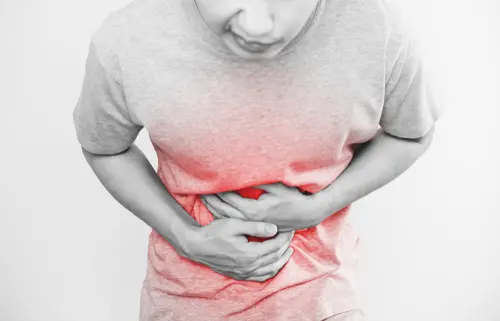- Home
- Medical news & Guidelines
- Anesthesiology
- Cardiology and CTVS
- Critical Care
- Dentistry
- Dermatology
- Diabetes and Endocrinology
- ENT
- Gastroenterology
- Medicine
- Nephrology
- Neurology
- Obstretics-Gynaecology
- Oncology
- Ophthalmology
- Orthopaedics
- Pediatrics-Neonatology
- Psychiatry
- Pulmonology
- Radiology
- Surgery
- Urology
- Laboratory Medicine
- Diet
- Nursing
- Paramedical
- Physiotherapy
- Health news
- Fact Check
- Bone Health Fact Check
- Brain Health Fact Check
- Cancer Related Fact Check
- Child Care Fact Check
- Dental and oral health fact check
- Diabetes and metabolic health fact check
- Diet and Nutrition Fact Check
- Eye and ENT Care Fact Check
- Fitness fact check
- Gut health fact check
- Heart health fact check
- Kidney health fact check
- Medical education fact check
- Men's health fact check
- Respiratory fact check
- Skin and hair care fact check
- Vaccine and Immunization fact check
- Women's health fact check
- AYUSH
- State News
- Andaman and Nicobar Islands
- Andhra Pradesh
- Arunachal Pradesh
- Assam
- Bihar
- Chandigarh
- Chattisgarh
- Dadra and Nagar Haveli
- Daman and Diu
- Delhi
- Goa
- Gujarat
- Haryana
- Himachal Pradesh
- Jammu & Kashmir
- Jharkhand
- Karnataka
- Kerala
- Ladakh
- Lakshadweep
- Madhya Pradesh
- Maharashtra
- Manipur
- Meghalaya
- Mizoram
- Nagaland
- Odisha
- Puducherry
- Punjab
- Rajasthan
- Sikkim
- Tamil Nadu
- Telangana
- Tripura
- Uttar Pradesh
- Uttrakhand
- West Bengal
- Medical Education
- Industry
Pregabalin effective in relieving symptoms in Functional Dyspepsia, finds study

Pregabalin was shown to significantly alleviate dyspeptic symptoms in a research done by Isariyaphong Kotikula and colleagues, particularly in individuals with major epigastric discomfort.
Central neuromodulators are now one of the therapeutic choices for the treatment of functional dyspepsia (FD). Pregabalin, a gabapentinoid, is a neuromodulator that may help FD patients with visceral hypersensitivity.
The findings of this study was published in Alimentary Pharmacology & Therapeutics on 16th August, 2021. The goal of this study was to evaluate pregabalin's effectiveness and safety in the treatment of FD.
Researchers conducted a placebo-controlled research on FD patients who did not react to proton pump inhibitors. For 8 weeks, patients were randomly allocated to either pregabalin (75 mg daily) or a placebo. The major goal was to have an appropriate alleviation response rate. Improvements in quality of life, pain ratings in different categories, and safety profile were the secondary objectives.
Pregabalin showed a substantial improvement in terms of response rate as measured by self-reporting of sufficient alleviation, dyspeptic symptom score (Global Overall Symptom scale), and quality of life in this research (the short-form Nepean Dyspepsia Index scores). This impact began in week 4 and lasted until the end of the trial in week 8. Patients in the pregabalin group reported dizziness as a significant adverse effect in roughly half of those taking this drug. During the trial, there were no severe adverse effects.
In conclusion, this prospective, randomized, double-blind, placebo-controlled clinical study found that pregabalin had substantial advantages in the treatment of FD patients who were H. pylori-negative and nonresponsive to a PPI, particularly in patients with predominant epigastric pain syndrome. Dizziness was the most prevalent adverse effect, which looked to be well tolerated after the first week of therapy.
Reference:
Kotikula, I., Thinrungroj, N., Pinyopornpanish, K., Kijdamrongthum, P., Leerapun, A., Chitapanarux, T., Thongsawat, S., & Praisontarangkul, O. (2021). Randomised clinical trial: the effects of pregabalin vs placebo on functional dyspepsia. Alimentary Pharmacology & Therapeutics, 54(8), 1026–1032. https://doi.org/10.1111/apt.16588
Medical Dialogues consists of a team of passionate medical/scientific writers, led by doctors and healthcare researchers. Our team efforts to bring you updated and timely news about the important happenings of the medical and healthcare sector. Our editorial team can be reached at editorial@medicaldialogues.in.
Dr Kamal Kant Kohli-MBBS, DTCD- a chest specialist with more than 30 years of practice and a flair for writing clinical articles, Dr Kamal Kant Kohli joined Medical Dialogues as a Chief Editor of Medical News. Besides writing articles, as an editor, he proofreads and verifies all the medical content published on Medical Dialogues including those coming from journals, studies,medical conferences,guidelines etc. Email: drkohli@medicaldialogues.in. Contact no. 011-43720751


